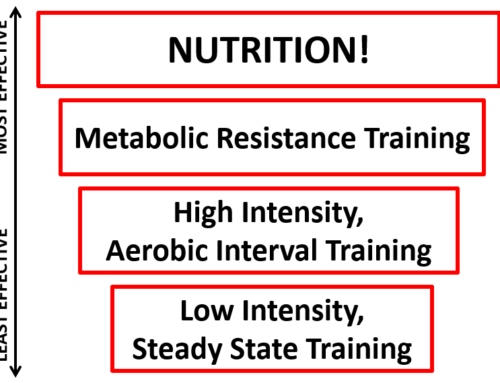Why do so many people struggle to exercise regularly? My 30 years in the fitness industry have taught me that many people struggle because they don’t have a long-term focus. Short-term objectives can motivate you to start an exercise program or cross specific hurdles, but to make fitness a permanent part of your lifestyle you need to focus on the long-term goal of health.
Short-term goals generally motivate us to get started. Losing weight is a great example, and it is an appropriate goal if you are overweight. But weight loss is a short-term goal; it has an endpoint. After all, sooner or later you will hit your predetermined weight or lose all of your excess body fat. Then what? Psychologically, you have “arrived.” You have achieved your goal, and your motivation to work out will fade. We have seen this scenario play out many times over the years. People who no longer have weight loss as a motivation often regain the weight they lost initially. Meanwhile, they also lose the other benefits that regular exercise had offered.
Another problem with using only short-term motivation is that slow progress may feel discouraging. If you are not losing weight as quickly as you had hoped, for example, you might lose your motivation and stop trying altogether. Relying solely on short-term motivation will not work forever.
The answer to these problems is to incorporate long-term motivation into your fitness practices. Adding long-term motivation will help sustain your fitness practice during the successful times when you feel like you’ve “arrived” at a goal and during the discouraging times when you don’t want to continue. Specifically, we recommend focusing on the long-term health benefits of exercise. This focus is not only healthy and motivating, it also makes it easier to achieve your short-term goals along the way. Here are just a few of the reasons we recommend focusing on the long-term goal of health:
- It has no endpoint. Proactively managing your health is an ongoing process. You will enjoy results along the way as a positive consequence of this process, but you are never “done” being healthy.
- It is hard to fail. Although you are never done, it is difficult to fail at being healthy. When you are focused on the process (rather than the outcome), issues such as not losing weight quickly enough disappear. Small setbacks are simply that: small setbacks in a much larger process.
- It is motivating! For most of us, healthy long-term objectives like staying fit and being good role models for those we love have more staying power than short-term objectives. There’s nothing wrong with wanting to lose weight for your high school reunion or to fit into a pair of old jeans, but those motivations pale in comparison to the lifelong health benefits offered by staying fit, active, and healthy.
As you develop a long-term, health-centered approach to exercise, remember that short-term goals are not bad. In fact, they’re important tools to help us overcome boredom, challenge ourselves, and introduce new practices. We are simply suggesting that your main objective should be the most important and have the most staying power. Re-focusing on your most significant objectives will put the short-term goals in perspective. If you are healthy, most of them will take care of themselves over time.
This week, ask yourself the question “Why do I exercise?” Make sure that your answer lines up with reasonable, healthy, long-term goals, then use your short-term goals as tools to help you succeed. If you find you are having difficulty disciplining yourself to make the right “in the moment” decisions, check out The Prize Club. It will give you the tools and accountability needed to achieve your long-term objectives.
Copyright © 2011 Fitness Consultants Inc. All Rights Reserved.




